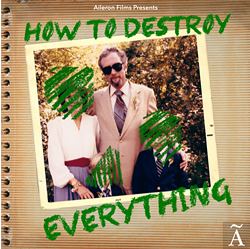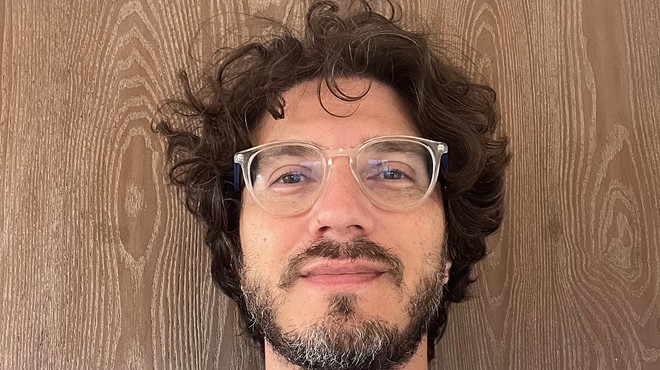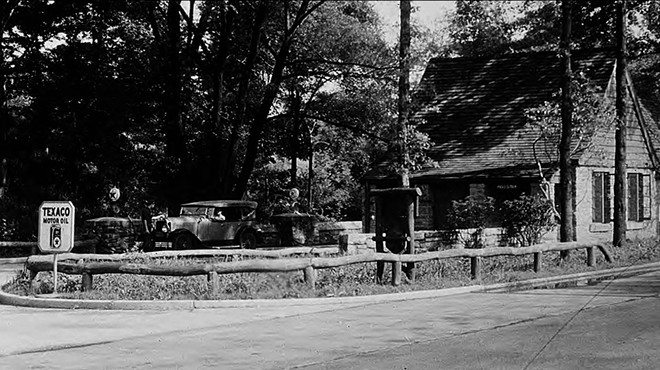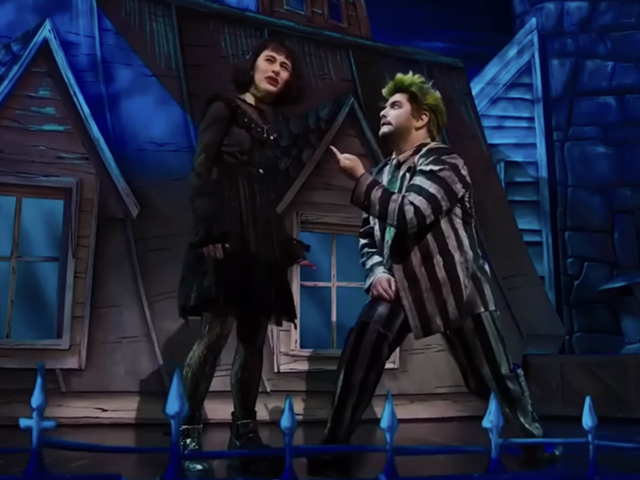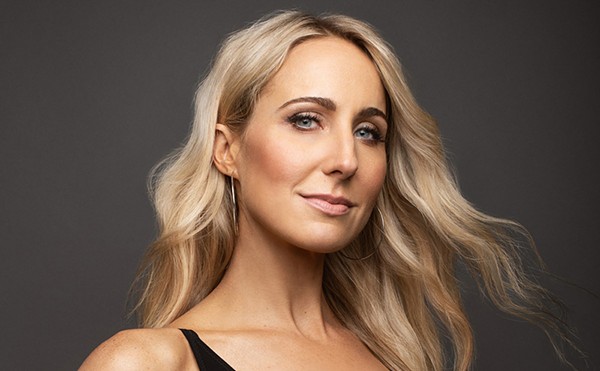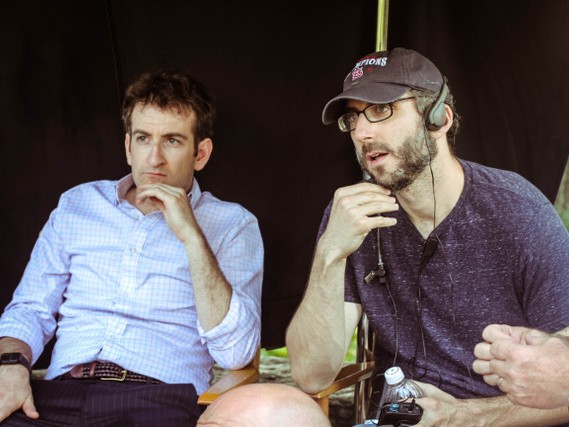
"Give him your birthdate and phone number," her partner says, "and he'll find out your social security number, and next thing you know, he's opened up bank accounts in your name, he's buying real estate with your credit score ..."
Pretty soon, the listener learns that the con artist the man is describing is his own father. And while the retelling is dramatized, the story is true. The podcast co-host, Danny Jacobs, really did use this approach to get his now-wife ready to meet his dad.
The scene is from the first episode of How To Destroy Everything, created by Jacobs and his childhood friend Darren Grodsky and produced by Aileron Podcast Studios.
"The podcast is about a malignant sort of abhorrent narcissist — my dad — who spends his life essentially destroying his career, his family and the broader community," Jacobs says. "And it is about my journey to try to get a better understanding of who he was and how my life today is affected by him."
Jacobs' father, Richard Jacobs, did wild things — in the first episode, Jacobs talks about how his dad was arrested in front of him, argued with everyone he met, sued at the drop of the hat, was disbarred, got fired from his job at the SEC and, in short, "destroyed nearly everything he touched."
As he was growing up in Creve Coeur in the '90s, Jacobs felt a lot of shame about his father. "This is the great trauma of my life," he says.
And he could never quite shake it, no matter what he did or how much therapy he went through. Richard died in 2015, yet he still haunts Jacobs to this day.
So this podcast — it's his attempt to shake that ghost. "Everyone grieves in their own way," Jacobs says. "Well, I think everyone processes trauma in their own way. ... Storytelling is the way through which I have the courage to examine my own life."
He's joined in that effort by Grodsky, his friend and now his writing partner; the two wrote and directed Growing Up and Other Lies (2014) and Humboldt County (2008). Grodsky's parents had known Richard Jacobs since high school, and the sons officially became best friends at age six. So, like everyone in the Jacobs' orbit, Grodsky was also affected by Richard, albeit in smaller ways.
"It's surreal and strange, and it's been emotional for me also," Grodsky says. "I knew Danny had a lot of pain, but I was a kid and so I didn't really understand it. ... I visited [Danny's home] many times and had many sleepovers, and walking into that house and listening to all these stories was surprisingly emotional for me."
The podcast actually started off in a completely different form, a TV pilot, which makes sense considering the co-hosts' previous film projects. On April 22, they were talking with a friend, who also happens to be a Conde Nast executive, and she suggested that it might actually be easier for the story to get made if it was a successful podcast first — and said that she thought it would be a good podcast.
"That was the initial spark," Jacobs says.
Initially, the two had no idea how to even start. But the more they talked, the better the idea seemed. So they began calling around to acquaintances, asking for advice.
One of those calls was to Joel Peissig, who runs Aileron Podcast Studios and describes himself as being everything from "a writer to director to editor, sound designer, music supervisor, social media director." What started as a request for advice soon turned into bringing the podcast under Aileron's production company.
It was Peissig who suggested they look at Errol Morris' docuseries Wormwood, which incorporates narrative techniques such as fictionalized scenes, interviews, conversations and more to tell its story. Jacobs and Grodsky liked that idea, and How to Destroy Everything thus uses multiple techniques to get the message across in its first two episodes, which are out now.
The switchups keep the podcast from sounding like other podcasts, which is a good thing. But it did create more work.
"That makes the production of this podcast a little bit more tricky and elaborate than just two people sitting at a microphone talking, something you could just pump out on a weekly basis," Grodsky says.
The process of making an episode begins with research and interviews, then a script and then casting the script. Jacobs and Grodsky had an idea of a general outline for the whole series. But that's shifted over time as new information has come in through interviews or from people reaching out to the duo.
Finding out new things about his father has been an odd experience for Jacobs, who describes him as very closed off and secretive. One of the many things he discovered was that his father had been a passionate photographer as a child and had won competitions. He looked up old newspaper articles about his dad and found stories about his photography.
"I have a hard time squaring that [with] the guy that I knew," he says. "He was a bit of this black box when he was alive. ... As I'm learning more about him, it feels like I'm sort of taking back some control over my own story."
That experience has been cathartic and also darkly comic. And, with a whole season ahead of them, it's just getting started.
Subscribe to Riverfront Times newsletters.
Follow us: Apple News | Google News | NewsBreak | Reddit | Instagram | Facebook | Twitter | Or sign up for our RSS Feed

